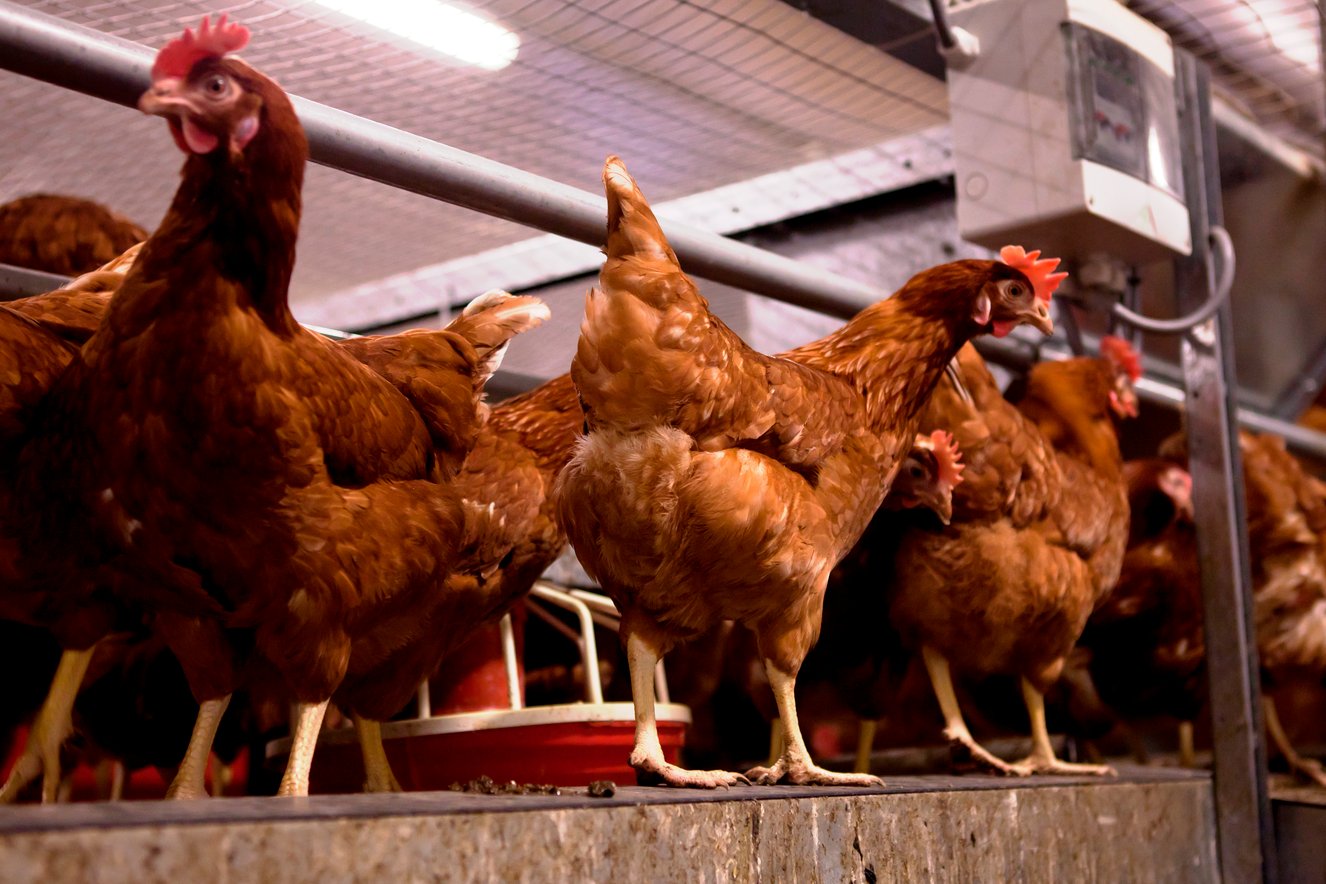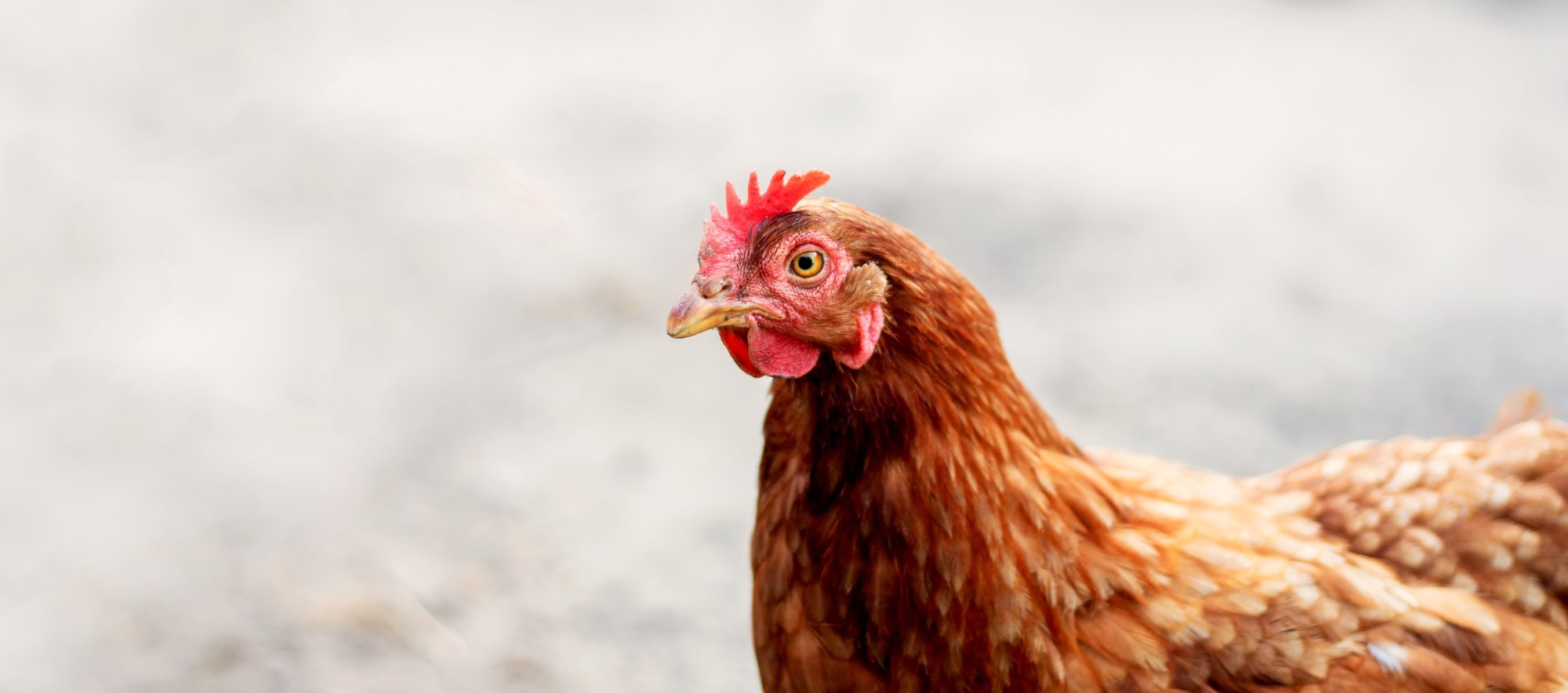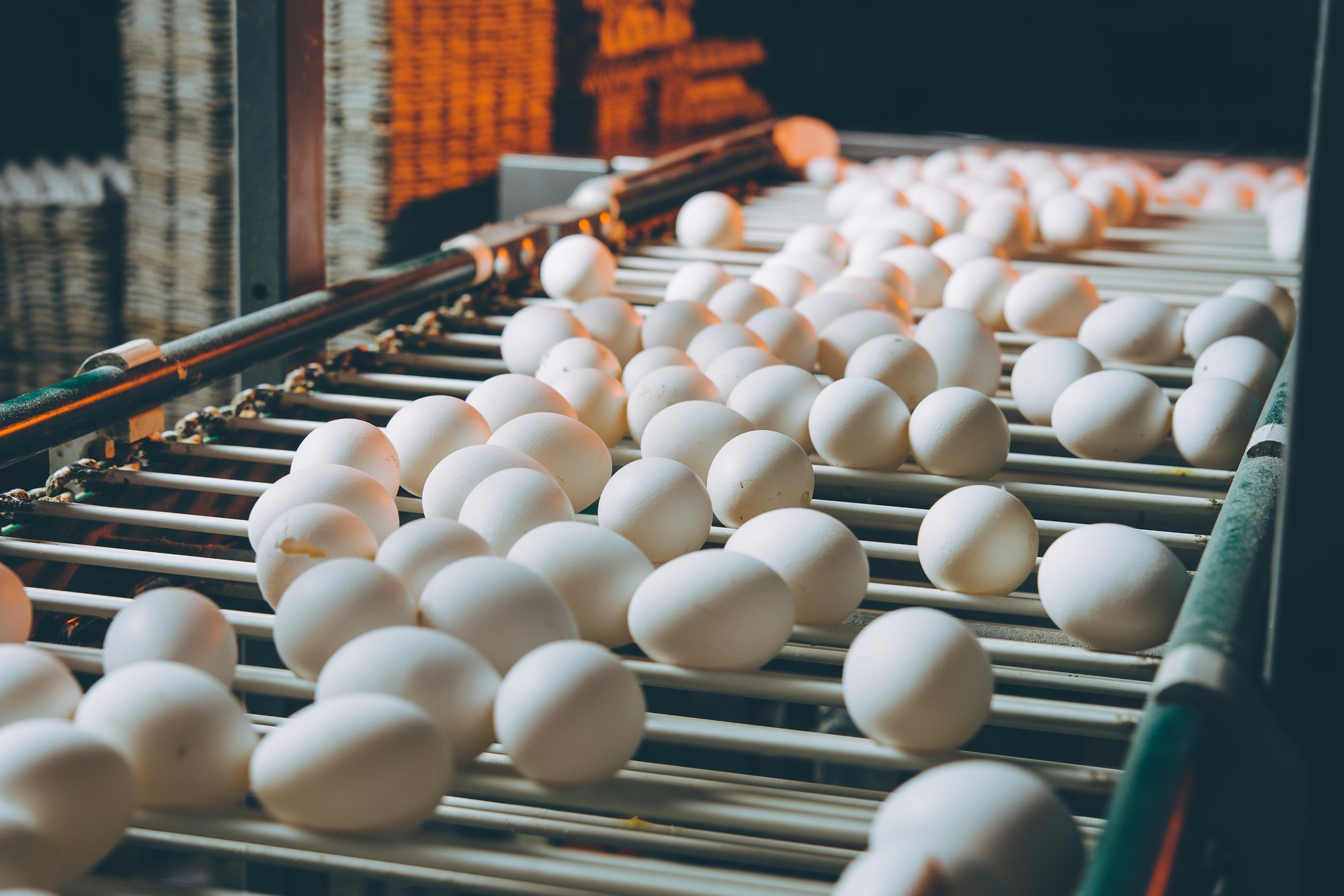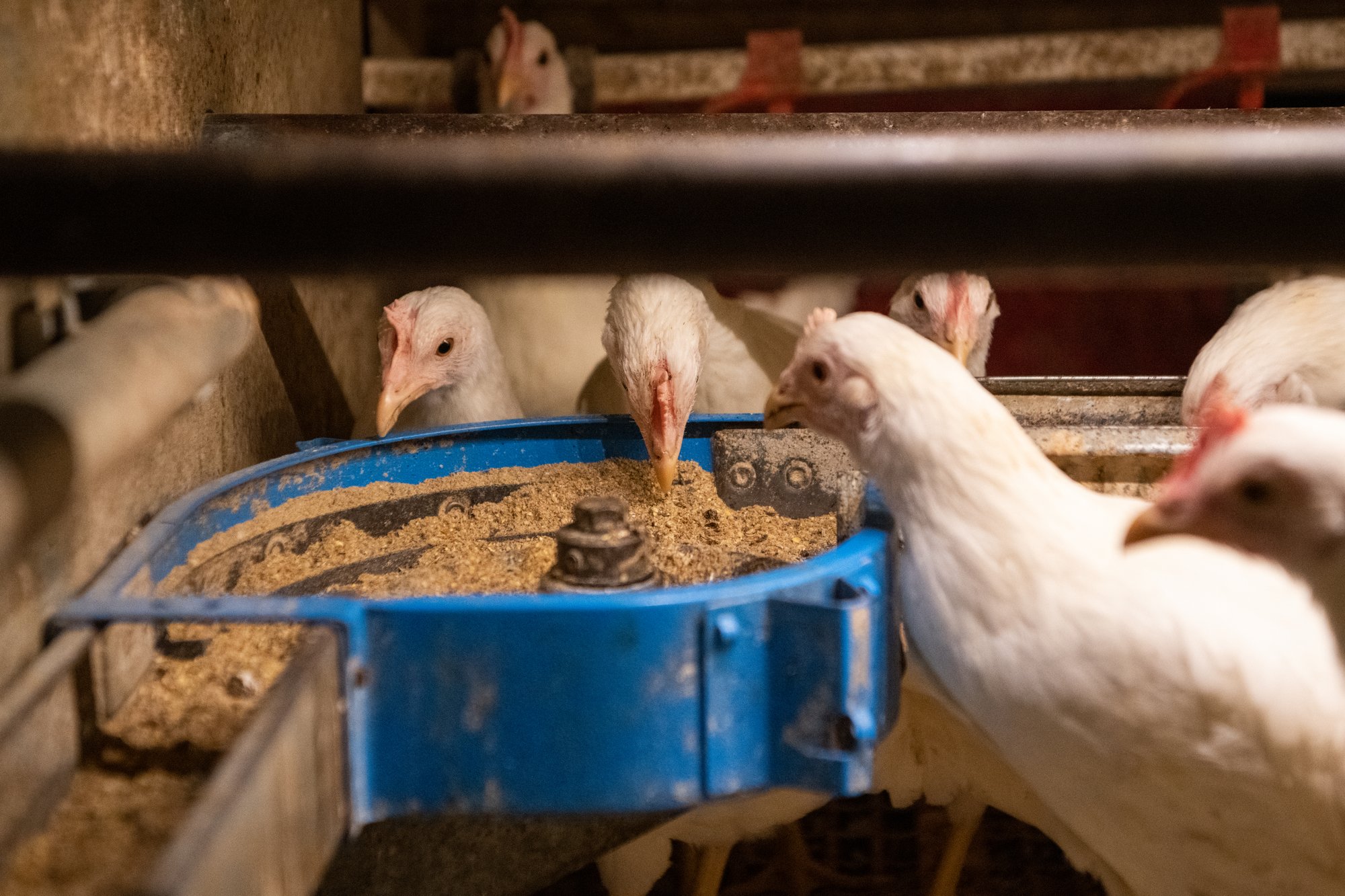Module 8, 9 and 10 | Applied poultry nutrition
WEDNESDAY 5, THURSDAY 6 AND FRIDAY 7 JUNE
Feedstuff composition, presentation, and dietary nutrient content have a great impact on performance of poultry. The effects can differ depending on species, age, and production goal. In order to achieve optimal animal performance at the farm, it is of great importance to know the relationships between nutrition, animal health, and technical performance. Poultry nutritionists need to combine theoretical knowledge about digestive physiology and biochemistry of feedstuffs to formulate diets. Therefore, the goal of nutrition is to provide essential nutrients to the animal for an efficient production, but also to assure animal welfare and health, and a low excretion of non-digested nutrients to the environment.
Learning objectives
- To obtain knowhow to apply theoretical and practical nutritional knowledge to improve poultry performance.
- To obtain knowhow to meet nutritional requirements of poultry, as well as how to face dilemmas like efficiency and intestinal health.
Applied poultry nutrition contains 3 sub-modules:
- Module 8 will focus on physiology, protein reduction, new broiler concepts, and minerals in relation to the electrolyte balance.
- Module 9 will focus on (intestinal) health, poultry diseases, and meat quality issues.
- Module 10 will focus on feed processing, laying hen nutrition, eggshell formation, broiler breeder nutrition, and challenges in layer management.
Remarks
- Please be aware that SFR recommendations will not be presented during the course.
- More experienced participants can also attend module 7 Nutrient Evaluation Monogastric, which will focus on energy, protein, and calcium and phosphorus evaluation to improve nutrient utilization and therefore feed efficiency
MODULE 8: WEDNESDAY 5 JUNE
PHYSIOLOGY, PROTEIN REDUCTION, NEW BROILER CONCEPTS, MINERALS
Welcome and introduction
Physiology
A brief introduction to the physiology of the gastrointestinal tract and its development with age to understand nutrient digestion, absorption, and intestinal health.

Minerals
Focus on the optimum levels of sodium, potassium and chlorine in broiler diets will be given. The effect of different sources of sodium as well as the effect of dietary electrolytic balance in broiler diets will be addressed.
Low protein diets
The current high price of virtually all protein-rich feedstuffs, in combination with the high dependency of soybean meal imports in the EU, has increased the demand for alternative protein sources in poultry feeds. Legislative changes are aiming to stimulate “circular economy” in the EU by lifting the ban on the use of processed animal proteins (PAPs) of swine, poultry, and insect origin. Moreover, the production of alternative (vegetable) protein-rich ingredients and their by-products is promoted. Many questions about governmental regulations, economics and potential application of alternative vegetable and animal protein sources on animal feeds are raised by the feed industry at this moment and will be addressed in this module.
Slower growing broilers
Slower growing broiler concepts are gaining interest in different parts of the world. What does this mean for future broiler farming with regard to nutrition and growth performance? Is it a possibility or a threat? What are the implications for your (clients) farming system? Are your current broiler concepts sufficient for birds raised according to slower growing principles? Some examples that will be discussed are the situation in the Netherlands (Beter Life Chicken) and in Europe (European Chicken Commitment/Better Chicken Commitment).

Feed formulation
Different diet compositions will be used to illustrate how a nutritionist can formulate a specific diet suitable for a given situation.
Meet the trainers

Roger Davin
Ellen van Eerden
Lotte Stokvis
MODULE 9: THURSDAY 6 JUNE
INTESTINAL HEALTH, POULTRY DISEASES AND MEAT QUALITY
Intestinal health
The carefully balanced ecosystem of the intestinal tract can be subject to nutritional and microbial challenges. Therefore, the intestinal immune system, the most common intestinal pathogens in poultry, and nutritional factors affecting intestinal health will be discussed.
Effects of mycotoxins in poultry
The increased levels and variety of mycotoxins in feedstuffs and consequently in feeds poses unpredictable feed safety problems worldwide. In brief, these substances affect the gastrointestinal tract in a negative sense. Most of all know the main effects of mycotoxins in different animal species when acute contamination is considered. However, chronic exposure to mycotoxins remains a challenge under subclinical and asymptomatic circumstances, where economic losses cannot always be avoided. And last, but not least, the interaction of mycotoxins with other mycotoxins, veterinary drugs, parasites, host microbiome, as well as feedstuff components must be kept in mind when evaluating risks.
Coccidiosis and anticoccidial strategies
Coccidiosis is a disease caused by an intestinal parasite, which not only leads to sick birds, but also to severe economic losses. Therefore, prevention of coccidiosis is of utmost importance in the poultry industry. In this lecture we will discuss which strategies are available and how they can or should be implemented.
Myopathies
Deviations in the breast fillet are one of the main reasons for the rejection of broiler chickens in the slaughterhouse. On which aspects are the broilers assessed and how can we respond to them with nutrition and management?
Feed Formulation
Different diet compositions will be used to illustrate how a nutritionist can formulate a specific diet suitable for a given situation.
Meet the trainers

Roger Davin

Ellen van Eerden

Regiane Santos
MODULE 10: FRIDAY 7 JUNE
FEED PROCESSING, LAYING HEN NUTRITION, EGGSHELL FORMATION, BROILER BREEDER NUTRITION AND CHALLENGES IN LAYER MANAGEMENT
Effect of feed processing on digestion and nutritional value of poultry feeds
Producing feed is more than just making a good recipe or formula. Processing technology can have an effect on intestinal health and can improve the nutritional value, but also worsen the feed utilisation.
Egg formation and egg quality
An important issue in layer production is the reducing egg quality with aging of birds. This is not only related to nutrition, but with nutrition you are able to support the eggshell quality. Egg formation, deviations in egg formation, and nutrients that can affect egg (shell) quality will be discussed.

Challenges in layer management in Europe
In Europe, more and more laying hens are kept in alternative housing systems instead of (enriched) cages. In some countries, debeaking of laying hens and killing of day-old male layer chicks are or will be banned as well. This all results in new challenges in layer management and nutrition that will be discussed.
Broiler breeder nutrition
A broiler breeder bares the genetics of a broiler (high growth rate), while it needs to produce high quality hatching eggs that will give vital broiler chicks. Nutrition will affect the breeder but also the broiler chick. All these factors make broiler breeder nutrition very complicated. In this presentation these challenges will be discussed.

Feed Formulation
Different diet compositions will be used to illustrate how a nutritionist can formulate a specific diet suitable for a given situation.
Meet the trainers

Roger Davin

Laura Star
